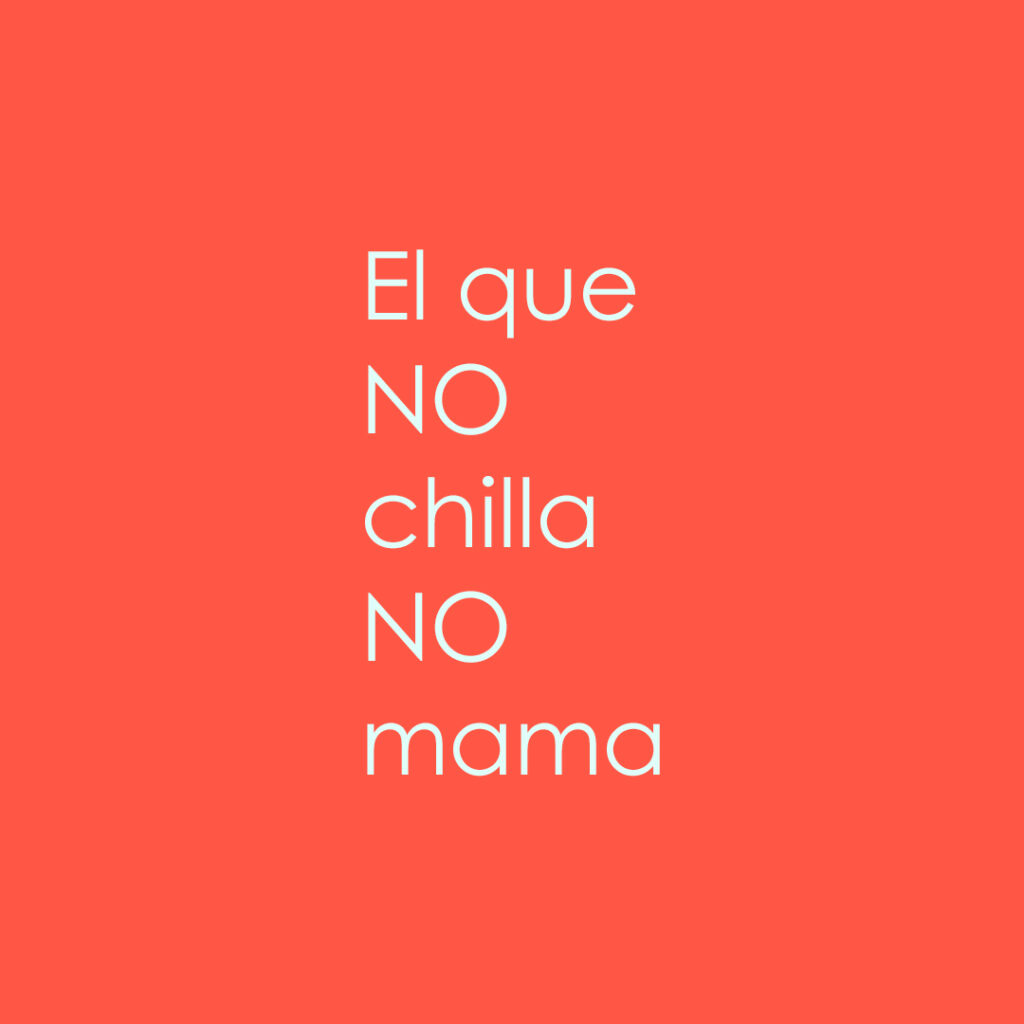
Better not to complain:
We are used to not complaining because it is easier. The person who wants to complain about something is seen as the weak. We have to be strong no matter the conditions or situations that we are going through.
If a kid it’s been bullied and complains with the teacher about his bully, he will receive a social punishment with their pairs. Because of his complaint, it’s been seen as something wrong.
If a woman complains to her family about her new husband, she will be told to fix her marriage. Because of her complaint, it’s been seen as something wrong.
If a worker complains to their coworkers about their boss, they will be told to be thankful for a job. Because of his complaint, it’s been seen as something wrong.
El que no chilla no mama:
In Colombia, there is a saying that is: “El que no chilla no mama” that could be translated like: “A baby that doesn’t cry gets no milk” or “If you don’t cry, you get no treatment.” And it is the opposite of what we have been told. The idea of a baby crying is clearly a complaint, and then the baby gets the reward for the milk.
Nevertheless, Colombian people do not make so many complaints. Even when the social gap in Colombia is enormous, people tend to hold a lot with their jobs, the inequity, the social problems, etc.
Colombians also say that they are “gente berraca” which means: that they are “brave people” and always going forward no matter how difficult the situation is.
It’s a contradiction to feel brave when you hold and tolerate, but not when you make a complaint. The “berraca” (brave) people do not cry and do not complain.
But, sometimes, something breaks.
Last week a driver of the public transport system of Bogotá (SITP, Sistema integrado de transporte público) stopped the bus in the middle of a route, asking the people inside the bus to go down and quit his job. He replies that he could not tolerate this job more, and social media explodes. Many people made fun of him, but also some people supported him. He complained out of the system; he did not write a resignation letter or talk to his boss. He tried to hold and hold as much as possible. But, sometimes, something breaks someone breaks.

Now I understand that complaining does not make me less brave (less “berraca”). I do not need to walk on the edge, waiting to support as much as possible before complaining. Even if you do not make a formal complaint inside the system, complaining with your friends makes you feel lighter. The importance of the complaint is first to be heard and second to change something. To make a change, we all need to complain or hear the other one complaining.
One reply on ““El que no chilla no mama””
Natalia, funny that I also had the idea to do my next blog-entry on “el que no llora no mama” because as Colombian as it sounds, it shows the vague competency of the system to work on a complaint no matter how basic or serious it may be. The phrase itself exposes the lack of competency of institutions to deal with a requirement and the absurd practices to which we have to resort to assert our rights, more in societies like ours. Great and curious that we have agreed on the same idea on this topic.